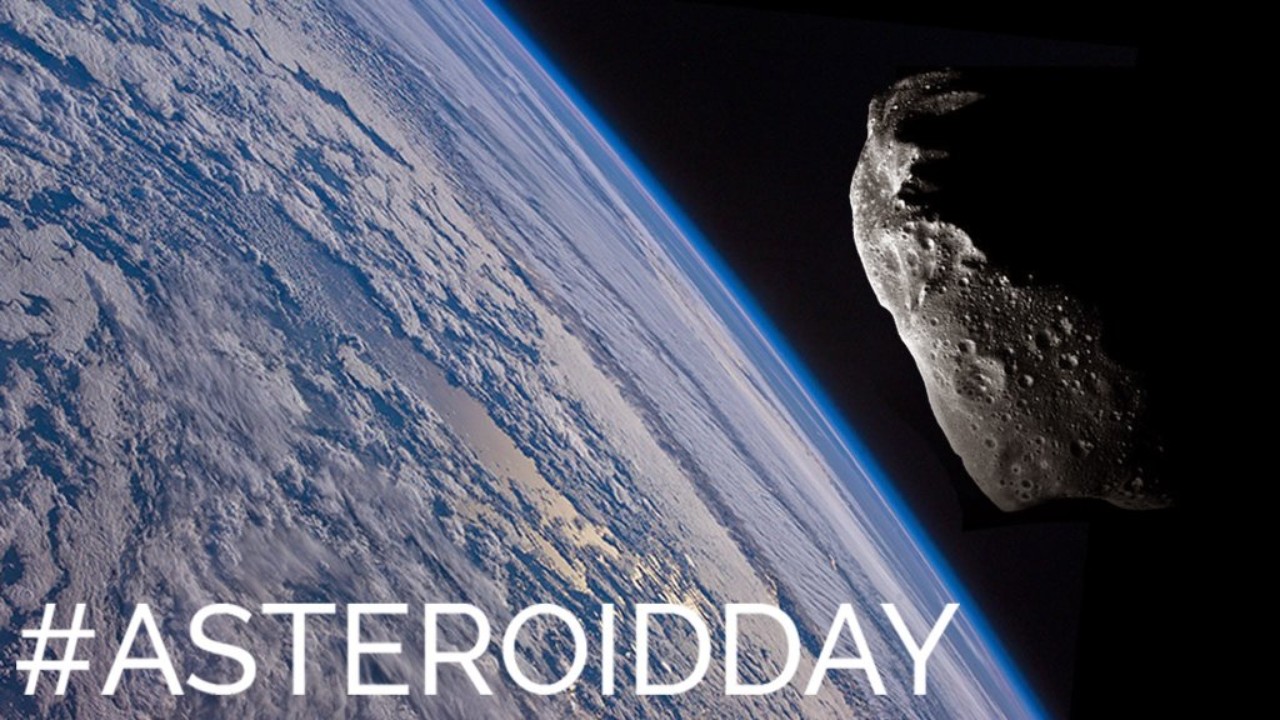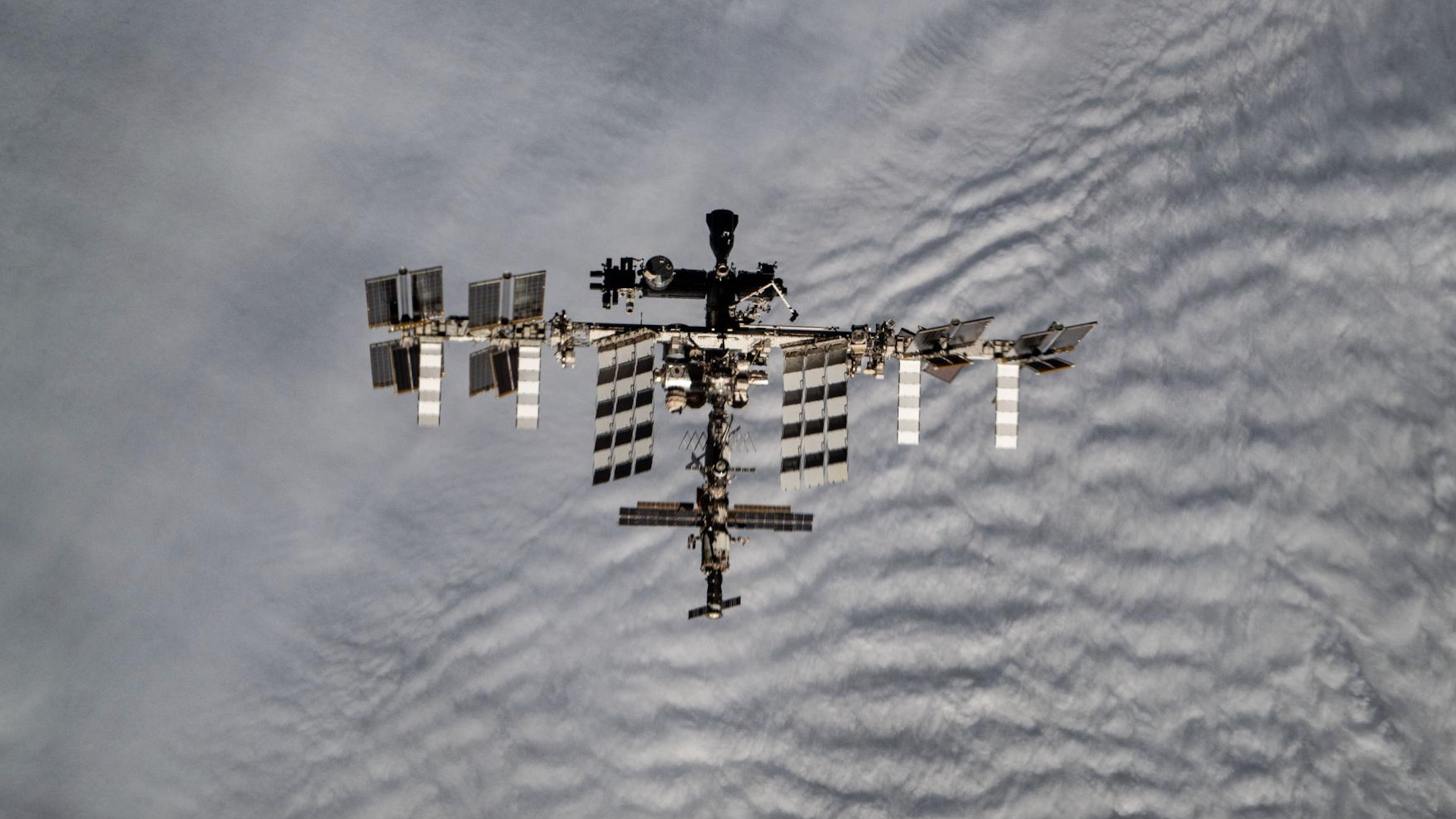Asteroid Day 2019 Is Coming Soon — Here's How to Celebrate

Breaking space news, the latest updates on rocket launches, skywatching events and more!
You are now subscribed
Your newsletter sign-up was successful
Want to add more newsletters?

Delivered daily
Daily Newsletter
Breaking space news, the latest updates on rocket launches, skywatching events and more!

Once a month
Watch This Space
Sign up to our monthly entertainment newsletter to keep up with all our coverage of the latest sci-fi and space movies, tv shows, games and books.

Once a week
Night Sky This Week
Discover this week's must-see night sky events, moon phases, and stunning astrophotos. Sign up for our skywatching newsletter and explore the universe with us!

Twice a month
Strange New Words
Space.com's Sci-Fi Reader's Club. Read a sci-fi short story every month and join a virtual community of fellow science fiction fans!
No matter where you are in the world, it's more than likely that you can participate in Asteroid Day — an international event meant to raise awareness of these small, rocky bodies.
While the day on Sunday (June 30) commemorates a large impact that flattened the forest in Tunguska, Siberia, in 1908, asteroids are interesting to study not only because of their threat to Earth, but also because they are time capsules of the early solar system.
NASA and many international partners continually hunt for threatening asteroids in the solar system. While we know of no imminent issues and have tracked 95% of all asteroids that could kill our civilization, there is more work to be done because many asteroids are smaller and thus more difficult to find.
Related: Humanity Will Slam a Spacecraft into an Asteroid in a Few Years to Help Save Us All
That's why the Chelyabinsk incident in 2013 caught everyone by surprise, when a body the size of a six-story building exploded over a Russian town and caused many injuries. Asteroid Day calls for a hundred-fold increase in asteroid monitoring; there is a petition available online for anyone who wants to sign.
Asteroids are also important worlds to study because they represent what the solar system used to look like billions of years ago, before the planets were formed from rocks that gradually stuck together under mutual gravity. That's why there are two missions right now studying asteroids — Japan's Hayabusa2 and NASA's OSIRIS-REx (Origins, Spectral Interpretation, Resource Identification, Security, Regolith Explorer). Both spacecraft will bring samples back to Earth for detailed study.
And closer to home, there are many events to help you learn more about asteroids on or around June 30 — more details are on the Asteroid Day website.
Breaking space news, the latest updates on rocket launches, skywatching events and more!
In the United States, the Smithsonian National Air and Space Museum will host an expert panel comprising former astronaut Tom Jones, museum director Ellen Stofen, museum geologist Jim Zimbelman, Lindley Johnson (NASA's planetary-defense officer), Elena Adams (who is participating in NASA's Double Asteroid Redirection Test mission to redirect an asteroid's trajectory), and Kelly Fast (program manager of near-Earth object observations for the Planetary Defense Coordination Office).
Asteroid Day Japan will have an expert panel including Makoto Yoshkkawa, mission manager of the Hayabusa2 mission. Yoshkkawa will speak at the Sundai Gukuen in Tokyo, and will be linked to five other sites around Japan.
Events are planned in Austria at the National History Museum in Vienna, in Greece at the Greek Meteorite Museum, and in Luxembourg at the Luxembourg Space Agency and National Museum of Natural History. (The Asteroid Foundation is headquartered in Luxembourg).
Online, Asteroid Day TV will run a five-day broadcast starting on June 27 at 6 a.m. EDT (1000 GMT or 12 p.m. local time in Luxembourg). The full broadcast schedule is available online.
Asteroid Day was founded five years ago by an eclectic group: Brian May (astrophysicist and lead guitarist for the band Queen), Danica Remy (president of the B612 Foundation, which focuses on asteroid defense techniques), Rusty Schweickart (Apollo 9 astronaut), and Grig Richters, a filmmaker.
- A Fake Asteroid Headed to Earth Can Really Make You Think
- This Scientist Is Creating Fictional Asteroids to Save Humanity from Armageddon
- Even If We Can Stop a Dangerous Asteroid, Being Human May Mean We Don't Succeed
Follow Elizabeth Howell on Twitter @howellspace. Follow us on Twitter @Spacedotcom and on Facebook.

Elizabeth Howell (she/her), Ph.D., was a staff writer in the spaceflight channel between 2022 and 2024 specializing in Canadian space news. She was contributing writer for Space.com for 10 years from 2012 to 2024. Elizabeth's reporting includes multiple exclusives with the White House, leading world coverage about a lost-and-found space tomato on the International Space Station, witnessing five human spaceflight launches on two continents, flying parabolic, working inside a spacesuit, and participating in a simulated Mars mission. Her latest book, "Why Am I Taller?" (ECW Press, 2022) is co-written with astronaut Dave Williams.
